





A CAMPAIGN FOR RECOVERY
BREAKING THE CYCLE OF ADDICTION, ONE LIFE AT A TIME







BREAKING THE CYCLE OF ADDICTION, ONE LIFE AT A TIME
Whether it’s a neighbor, a coworker, a spouse, or a sibling, we all know someone who has struggled with addiction. Addiction knows no race, no class, no religion, no gender. Addiction presents in diverse ways and takes divergent paths, but one thing is universal: addiction harms every life it touches. The effects of alcohol and drug abuse – incarceration, homelessness, lost child custody – recur in generational cycles.
Stephanie Pannell took her first drink at age 10, one year after her parents divorced. By 15, she was using drugs and had dropped out of school. Soon, she was using meth to cope with an abusive relationship. By her late 20s, she had three children of her own and had suffered the loss of her mother from breast cancer. “That’s when my addiction spiraled out of control,” she said.
When she walked into Lifeline a year ago, she described herself as broken, with no energy left to fight. She had lost her children and her marriage had failed.
“I almost lost my life in the midst of everything else,” Stephanie said. ”I was in such a dark place, was just hoping and praying to be able to make it to the next day, even the next hour. knew deep down that there had to be something bigger than me, but at this point didn’t know what that would be.”
At Lifeline, she found her way with the help of understanding leaders.
“I started to examine my inner self and get down to the root of my problems. The facilitators loved me through it, no matter what type of emotion was feeling,” she said.
The long-term residential program helped her heal and, by the time she finished the three-month transition program, Stephanie had earned her GED and began a full-time job.
Stephanie has since moved into her own home and has reunited with her three beautiful children.
At any point in life, addiction can be devastating, but those touched by addiction as children are more likely to repeat this tragic and sometimes deadly cycle as adults. Since Lifeline Recovery Center began, over 2,000 people have been successfully treated for addiction. Here are two recent client success stories.
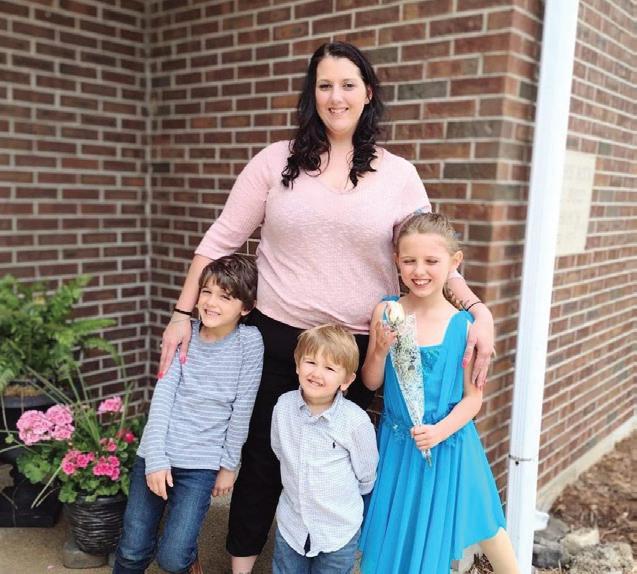
2022 graduate Stephanie Pannell reunites with her three children.
“Because of God, have my family, my self-worth, and my identity,” she said. “I have the ability to love and be loved. It’s all due to Lifeline opening their doors and never giving up on me.”
“Addictions can progress fast, and mine did.”
That was Kenny Vasseur’s experience in college, despite the fact that he did not take what some might consider the “typical” path to addiction. He was a good kid from a good family who never took risks in high school because he was afraid of getting into trouble.
That all changed when he got to college and took his first drink to fit in. He found he couldn’t stop.
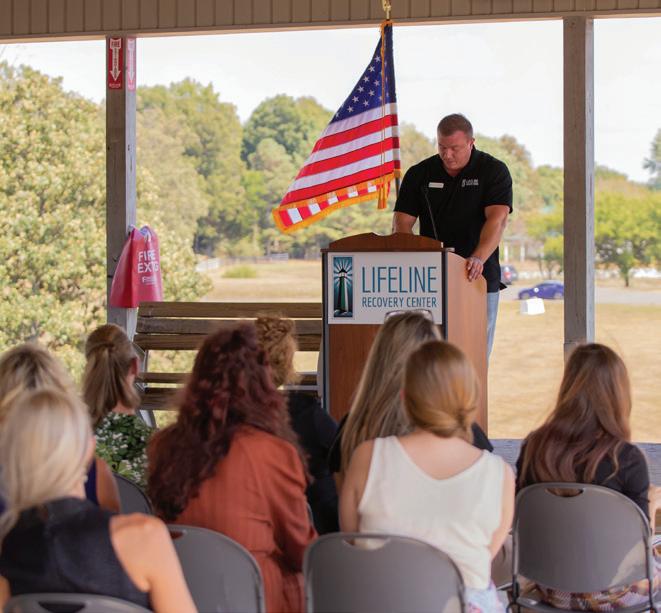
graduate
“I couldn’t just have a couple beers or a couple drinks,” Kenny said. “I had to drink as much as I could as fast as could.” Soon Kenny moved from alcohol to drugs.
Since getting sober through the long-term residential treatment program at Lifeline, Kenny now has hope for the future. “Milestones are the plot twists in your life where you turn down a different path and entirely change the outcome,” he said. Lifeline is his milestone.
“I couldn’t just have a couple beers or a couple drinks,” Kenny said. “I had to drink as much as I could as fast as I could.”
Mission: To provide men and women with Christ-centered solutions to addiction.
Vision: To help individuals become spiritually alive, mentally sound, and physically well.
Six people in Kentucky die every day from addiction. That’s an average of one death every four hours.
Alcohol and drug abuse typically skyrocket during challenging economic times, but when a global pandemic hit on top of these conditions, it added immense pressure to those pushed to their breaking point by addiction. There are so many people who need our help. And we know how to help them.
Lifeline Recovery Center was founded to humbly serve our brothers and sisters struggling with these life-controlling addictions. Following Christ’s example, we serve from a place of love, without judgment, and the results are nothing short of miraculous.
We have a program that produces remarkable results. We are collaborating with local partners – individuals, churches, and charitable foundations – to treat more and more people each year, but we are still unable to meet the demand for our services. Due to the limitations of our staffing, our facilities, and our finances we are forced to turn away 50% of the people who come to us for help.
On average, 50 clients graduate annually from Lifeline’s three-phase recovery program.
Lifeline can only accept 50% of the clients that apply annually.
We must have the necessary facilities, people, and programs that allow us to do this life-saving work.
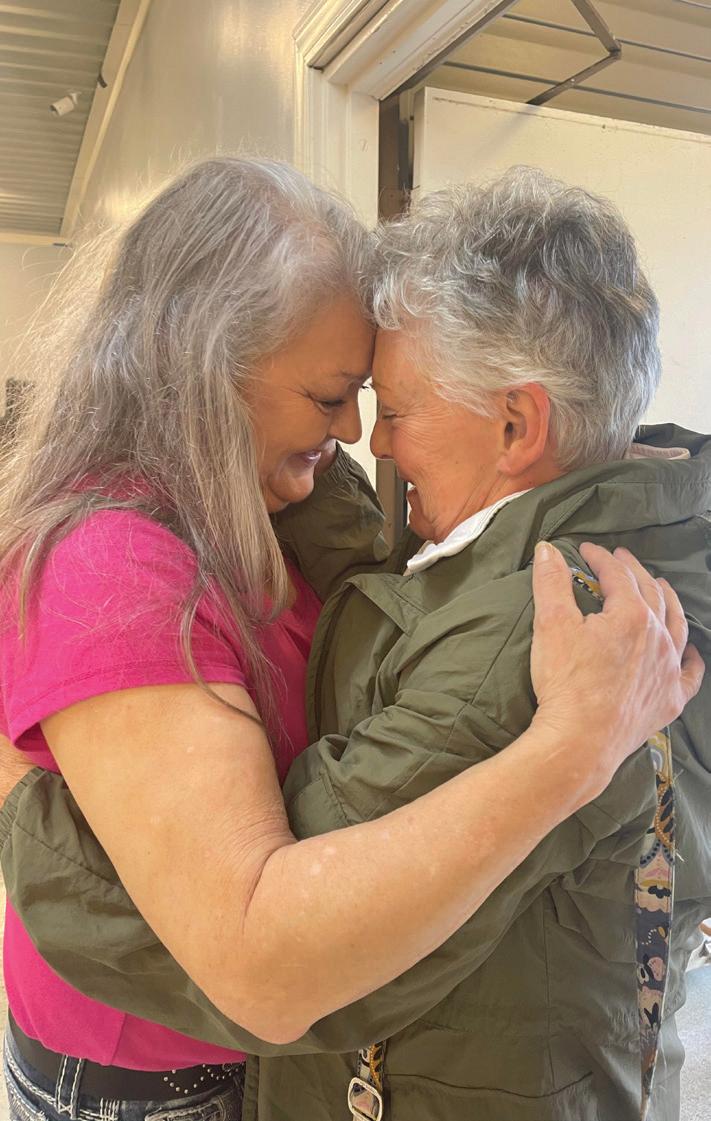
Our dedicated board of directors and our tireless staff have built a solid and ambitious strategic plan that will help us achieve the necessary growth to positively impact our mission.
The plan will allow us to serve more of our neighbors by offering a way to recovery and renewal. We will:
• Strengthen our programs by focusing on people, using a client-centered approach to meet their needs
• Enhance awareness of our work in, and our value to the community
• Achieve long-term financial stability to ensure our growth aligns with community needs
• Invest in facilities that support our commitment to excellence
Lifeline’s strategic plan is aimed at excellence in four critical areas. Reaching these milestones will allow us to reunite more families and restore our communities, one person at a time.
• Increase the number of clients we can accept annually by 50 or more, 33-40% more clients annually
• Expand the number of counselors and support staff, to reduce staff-to-client ratios
• Build new facilities to expand housing capacity and to provide additional client program offerings
• Establish an operating endowment fund to provide funding for annual maintenance and utilities expenses
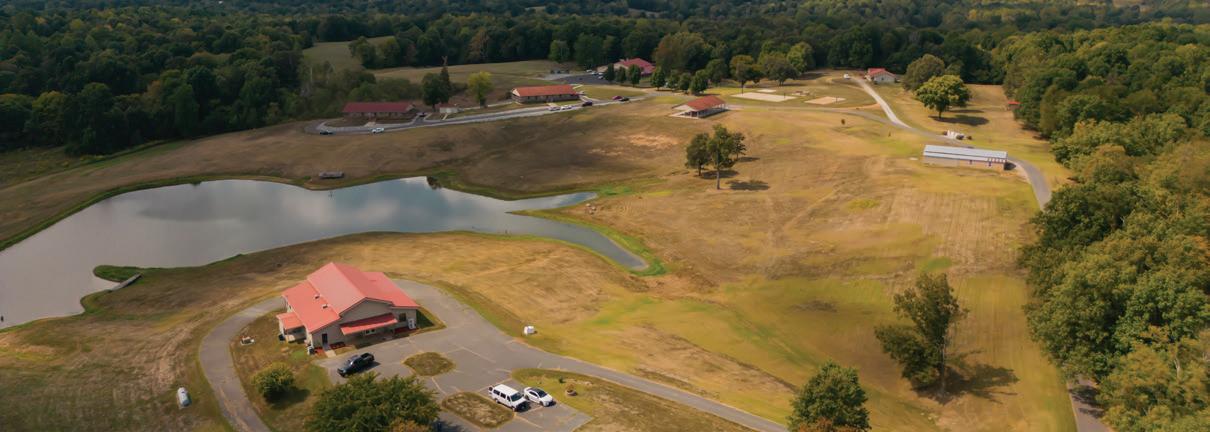
To maintain our commitment to excellence as we grow, as well as to fulfill insurance reimbursement requirements (an essential component of our revenue matrix), we must invest in qualified, highlytrained staff. This means not only paying appropriate wages, but also providing the essential benefits that support talent attraction and retention. We recently added a health and life insurance policy as a staff benefit. As an employer, we strive to provide our team with the means to stay healthy and happy in every aspect of their lives. By caring for the people who directly fulfill our mission, we will create the continuity in staffing that ensures our clients receive the very best care.
Lifeline is fully committed to growing and retaining talented staff members by adding positions and providing employee benefits.
Staff Investments:
• Support/Recovery Associates
• Clinical Staff
• Case Managers
We plan to begin offering:
• Employee Benefits - health, vision, and dental insurance, as well as retirement plans
Everyone involved in the Lifeline recovery journey – our board, our staff, and our volunteers – takes the responsibility of our calling seriously. We’ve made a commitment in perpetuity, and we are grateful for the opportunity to secure gifts that will continue to provide for future Lifeline clients, their families, and the community. We must steward the investments of our clients and our generous supporters, ensuring our facilities will be cared for far into the future. A long-term, endowed fund of $3 million would create a draw of roughly $150,000 annually to be used for facility maintenance.
The new Men’s Campus provides a spectacular spiritual setting in the rolling hills of Ballard County, as well as beautifully maintained facilities and abundant spaces suited to a variety of our programmatic uses. This dream property evokes our gratitude daily. In addition to raising money for the purchase of the Men’s Campus, we plan to expand transitional housing to ensure clients have the transition time that is so crucial to their long-term sobriety and their success after their time at Lifeline is complete.
The needs that we have on our Women’s Campus are evolving, and we must make significant improvements to provide extraordinary client care. In Paducah, we must craft a campus design and construct adequate facilities, including the necessary number of classrooms, offices, meeting rooms, counseling offices, and spaces for holistic program support.
Projects include:
• New chapel
• Transitional housing
• Intake center
• Classrooms
• Counseling and administration offices
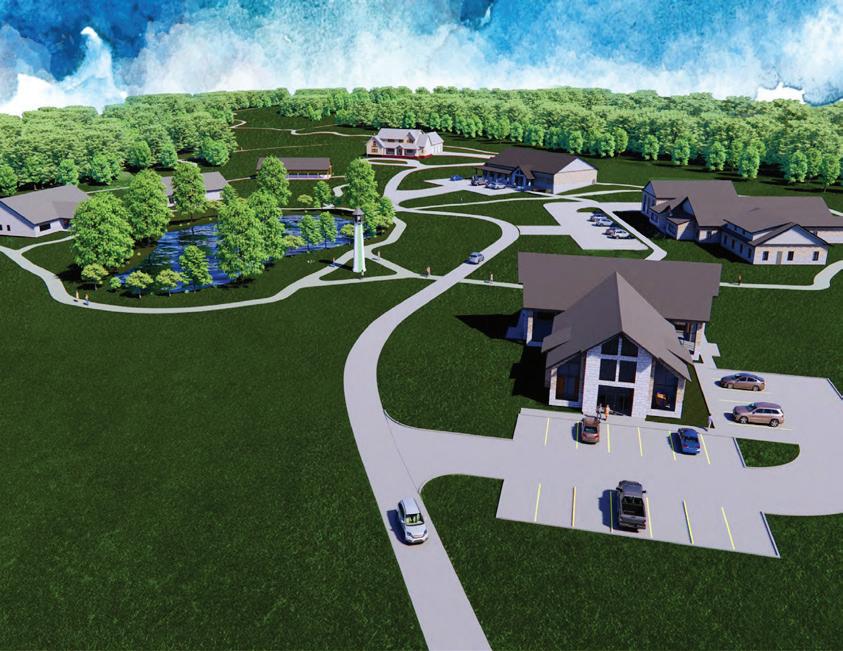
Lifeline is unique in its approach and unparalleled in its effectiveness versus outpatient or short-term treatment. What exactly is the secret to our success? Abstinence, faith, and a relationship with Jesus Christ are the foundational elements of our recovery program, but there’s another ingredient too: time.
The longer-term program provides residents the time and opportunity to receive spiritual enhancement, which is necessary to achieve a meaningful recovery. Science and clinical practice seem to have been slow to acknowledge or study the spiritual dimension of the human experience. We have learned, however, that it is rare when simply science, medication, or any human power alone can definitively relieve addiction.
Addiction involves complex neurochemical changes in the human brain. These changes occur over time and lead to self-destructive behavior. Consequently, time is needed to identify and change these negative patterns. Staying several months in our faith-based program allows our residents to develop and practice new habits in a structured, spiritual environment, promoting a more permanent renewal of faith and healthy lifestyle.
Lifeline fosters close, healthy relationships with peers in recovery. By nurturing these relationships over a period of time, they are more likely to continue when our residents leave the program.
…it is rare when simply science, medication, or any human power alone can definitively relieve addiction.
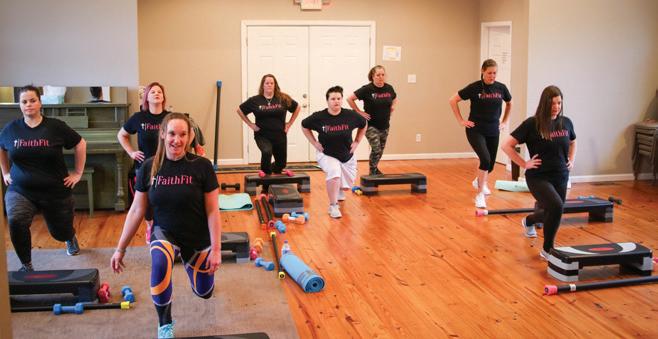
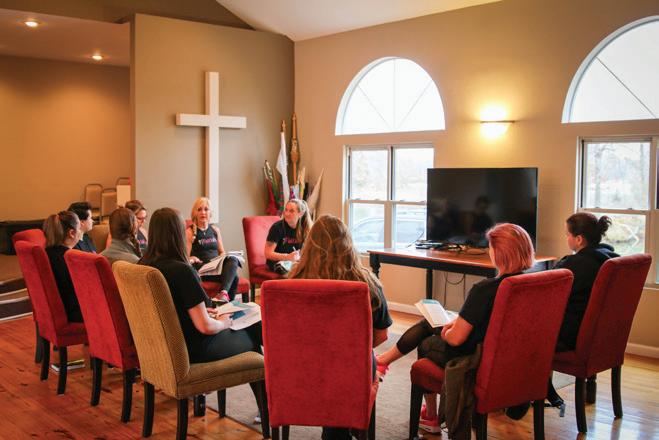
Ashley Miller, Lifeline executive director since 2020, knows the value of the organization inside and out. The daughter of addicts, she took her first pills at 12 and suffered her first overdose at 14. Her addiction worsened, even after her marriage and the birth of her daughter. After multiple felony charges and jail time, she ended up in 2013 on the women’s campus of what is now named Lifeline Recovery Center. It had opened 10 years earlier, following the start of the men’s program in 2004.
After she and her husband Eric completed the long-term residential treatment, each became involved here to help others, like many other graduates before and since. Research shows those who have been in addiction themselves make effective counselors for others in the same battle; and the graduates feel compelled to pay forward the love and grace they received here.
And, like many other successful graduates who have become productive members of our community, Eric has since opened his own contracting business, and Ashley became Lifeline’s leader.
“As one who came to this place in my darkest hour, it is my greatest honor and privilege to serve it now,” she said.
She was mentored by one of Lifeline’s founders and previous executive director Terrye Peeler. When Terrye passed the baton to Ashley in 2020, she knew Lifeline was in good hands. “It’s not a job – it’s her life, as it has been mine,” Terrye said. Ashley treasures the Lifeline vision.
Just as the founders stepped out in faith in 2004 when they rented the first location on Kentucky Avenue for $1, Lifeline leaders today continue their march forward in faith, with the recent acquisition of the Men’s Campus, and our aspirations for the Women’s Campus.
Meanwhile, Ashley implemented programming improvements that resulted in state licensure and national accreditation and hired clinical staff to qualify for some insurance reimbursement, a key factor in becoming financially sustainable.
“By the grace of God, Lifeline has grown from that vision that started nearly 20 years ago,” she said, “and we are committed to continue that growth until we reach our ultimate goal – that no one who wants to get sober will be turned away because of a lack of resources.”
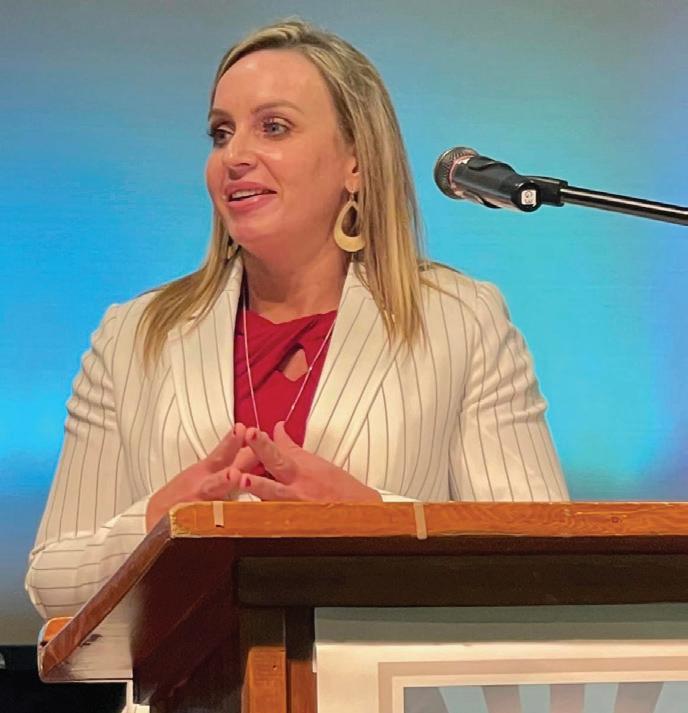
Ashley Miller, executive director
“My vision has always been that we could help more people than we’re helping now and not turn anyone away.”
- Ashley Miller
Whether you have suffered with addiction yourself; have watched helplessly as loved ones’ lives unraveled; or have witnessed the ravages on our community’s economy, no one is untouched. However, we are blessed to have an answer — one we know works — and you now have an opportunity to play your part in ensuring we share this answer with as many people as possible. Together, we will invest in our people, enhance our programs, improve our facilities, and secure our long-term future. In doing so, Lifeline Recovery Center will restore our clients to full health, serving their complete spiritual, mental, and physical needs.
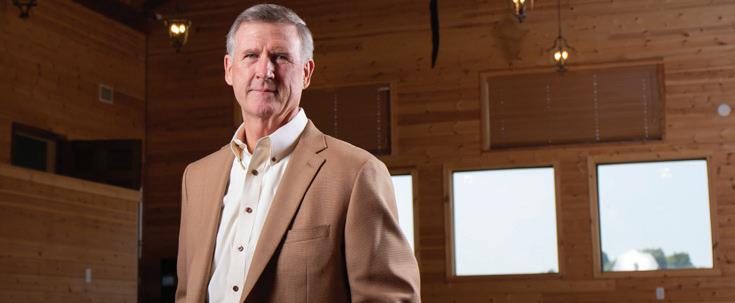
Your generosity will help others become whole. Through your charitable gifts, you will be living your faith and improving your community.
You can make an outright gift of cash, or pledge your support. Pledges can extend three years, and donations may be eligible for tax deductions.
Stock, or other appreciated assets, may qualify for a charitable tax deduction. If the stock has appreciated in value, you may avoid paying capital gains upon transferring it to Lifeline.
You can create a meaningful Lifeline legacy through a planned gift. Planned giving options include bequests, charitable gift annuities, charitable remainder trusts, life insurance policies, retirement plans, or other arrangements.
“Lifeline Recovery Center may seem like the last stop for many individuals coming to us. Help us show them, instead, that it is the first step to a new life.”
- Steve Powless, Lifeline board chair
Individuals who are 70 1/2 and older can donate a maximum of $100,000 to Lifeline directly from a taxable IRA, instead of taking their required minimum distributions.
please contact: Ashley Miller, Executive Director amiller@lifelinerecoverycenter.org Phone 270-443-4743
Ashley Miller, Executive Director Board of Directors
Steve Powless, Chair
Rev. Dr. Bernice Belt, Secretary
Dr. Jeffrey Taylor, Treasurer
David Bailey
Carla Berry
Dr. Casey Brantley
Tony Copeland
Missy Eckenberg
Terry Haas
Robert Hill
Ken Hunt
Bonnie Schrock
Todd Trimble
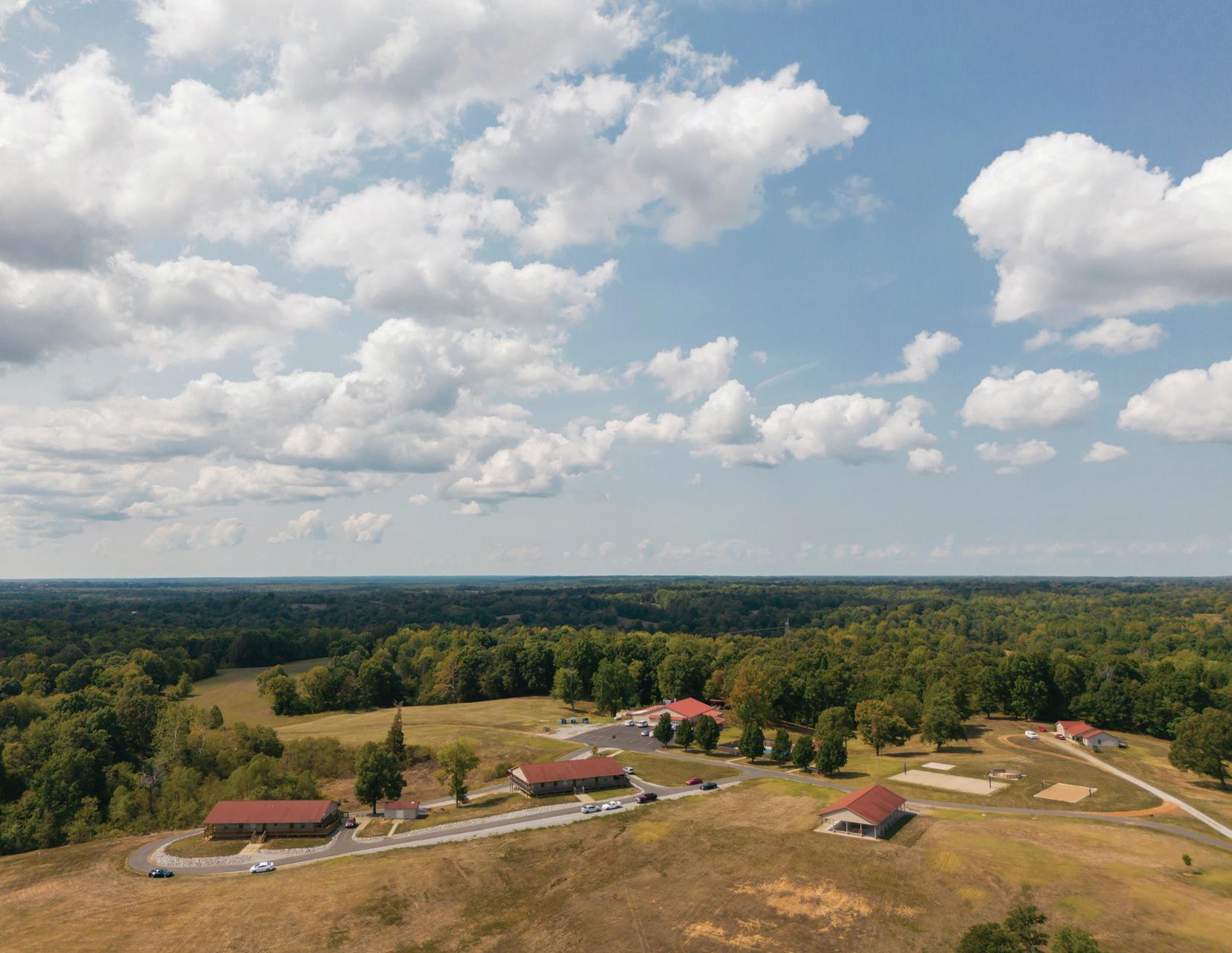
Lifeline Recovery Center P.O. Box 7652 Paducah, KY 42002
lifelinerecoverycenter.org
Campaign Committee Members
Steve Powless, Co-Chair
Missy Eckenberg, Co-Chair
Carla Berry
Jamey Brown
Terry Haas
Jeff Holland
Kenny Hunt
Bill Jones
Marty Nichols
Terrye Peeler
Todd Trimble
Honorary Members
Doreen and Bruce Hahn
Vivian and John Williams, Sr.
